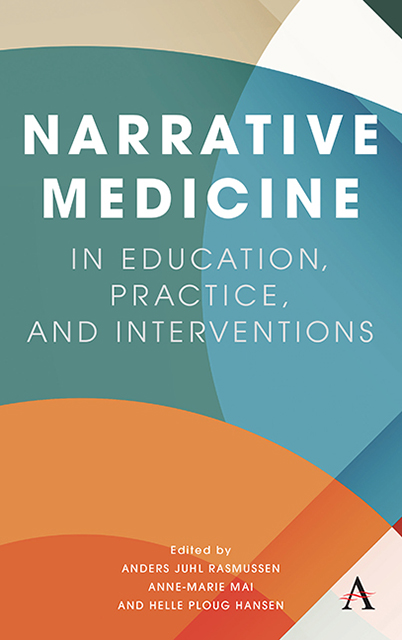Chapter 7 - Email Consultation in General Practice: Reflective Writing and Co-created Narratives
Published online by Cambridge University Press: 08 June 2023
Summary
This chapter presents the increasing use of e-mail as digital consultation between doctors in general practice and their patients and, indeed, with their next of kin. It analyzes how illness narratives are created and received in this asynchronous form of consultation. It takes a narrative perspective to argue that those elements in a patient's written illness narrative that become visible through e-mail consultations can contribute to a development of narrative competence in the doctor. Using interviews with patients and doctors, the chapter presents three case examples of types of patient narrative in e-mail consultations, drawing on Arthur Frank's theory about the narratives of seriously ill patients. It takes case examples to suggest that digital consultation can contribute to better patient–practitioner relations when written communication creates a space for the development of “co-created” narratives, which can in the end lead to better medical decisions. The chapter challenges the assumption that it is only literary texts that can form the basis for close reading in narrative medicine. The aim of the chapter is to show how principles and methods of narrative medicine are relevant to an understanding of e-mail consultation, its problems, and its potential.
E-mail consultations (e-cons) between general practitioners and their patients are becoming increasingly common. This chapter is about what happens in these forms of digital consultation, including how illness narratives figure in e-cons and how patients and doctors relate to them. We take a narrative perspective to argue that e-cons are small messages or notices originating from the patient's illness narrative. The narrative perspective provides the opportunity for a Interventionsclose reading of examples of e-cons, in other words, for a consciously methodical interpretation, as is practised in narrative medicine, for example, through the reading of literary texts. (Charon et al., 2017).
Citizens in Denmark have been able to send e-mails to their own doctor since 2009 when a contractual agreement with GPs made it obligatory for them to offer e-cons to “improve efficiency and quality through the digitalization of the health service” (PLO, 2010). At that time, a number of GPs had been sending e-mails to their patients in various forms for a number of years. In 2019, the Prak-tiserende Lægers Organisation (PLO) (Association for General Practitioners) in-troduced the application My Doctor, which, among other features, gives mobile access to e-cons. PLO defines e-mail consultation as follows: “E-consultation is simple and specific requests of a non-urgent nature.”
- Type
- Chapter
- Information
- Narrative Medicine in Education, Practice, and Interventions , pp. 119 - 134Publisher: Anthem PressPrint publication year: 2022

